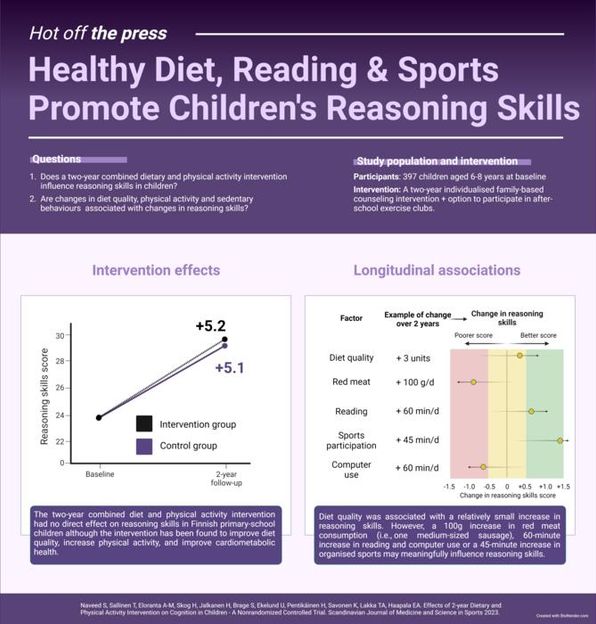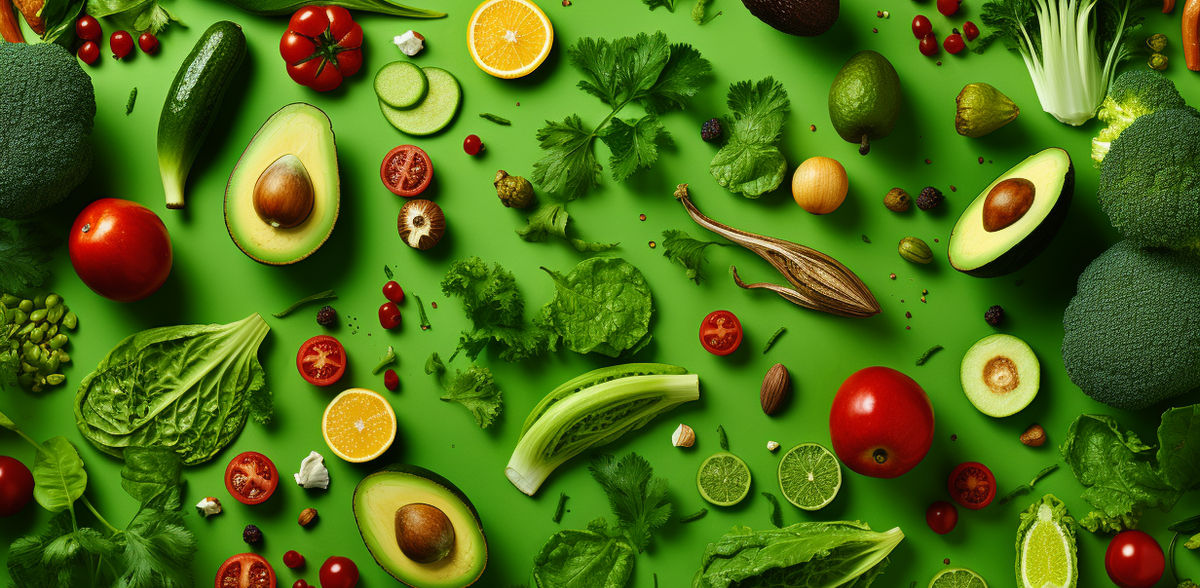A healthy diet, reading, and doing sports promote reasoning skills in children
Advertisement
Reasoning skills are crucial skills in learning, academic performance, and everyday problem-solving. According to a recent study conducted at the University of Eastern Finland, improved overall diet quality and reduced consumption of red meat, as well as increased time spent in reading and organised sports enhanced reasoning skills among children over the first two school years.

Healthy diet, reading and sports promote children's reasoning skills.
Eero Haapala
“Children with healthier eating habits showed greater cognitive development than other children. Specifically, better overall diet quality, lower red meat consumption, and higher low-fat dairy product intake were linked to better reasoning skills,” says Doctoral Researcher Sehrish Naveed of the University of Eastern Finland.
Children who spent more time in reading and organised sports showed better reasoning skills than their peers. On the other hand, excessive time spent on a computer and unsupervised leisure-time physical activity were associated with poorer reasoning skills. Screen time, active school transportation, recess physical activity, and physical activity intensity were not associated with reasoning skills.
Over half of the children participated in a two-year family-based and individualised diet and physical activity intervention. However, the intervention did not impact reasoning skills, with the children in the intervention and control groups exhibiting similar cognitive development.
“In the lives of growing children, diet and physical activity intervention is just one factor influencing lifestyle and reasoning skills. Based on our study, investing in a healthy diet and encouraging children to read are beneficial for the development of reasoning skills among children. Additionally, engaging in organised sports appears to support reasoning skills”, Dr Eero Haapala points out.
Published in the esteemed Scandinavian Journal of Medicine & Science in Sports, the results of this study are based on data from the Physical Activity and Nutrition in Children (PANIC) study. This sub-study examined the effects of a two-year diet and physical activity intervention on cognition among 397 Finnish elementary school children. The associations of dietary factors, physical activity, and sedentary behaviour with cognition over two years were also studied. The analyses considered parental education and income as well as children’s body fat percentage and maturity level.



























































